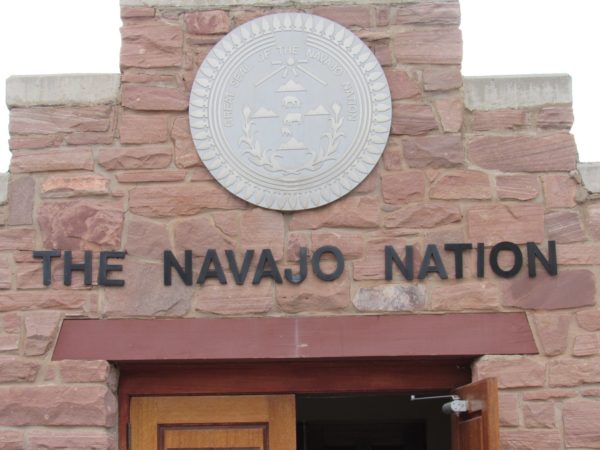
- Details
- By Native News Online Staff
WINDOW ROCK, Ariz. — On Sunday, the Navajo Department of Health, in coordination with the Navajo Epidemiology Center and the Navajo Area Indian Health Service, reported 54 new COVID-19 positive cases for the Navajo Nation and five additional deaths. The total number of deaths has reached 439 as of Sunday.
Reports indicate that approximately 6,547 individuals have recovered from COVID-19. 77,156 people have been tested for COVID-19. The total number of COVID-19 positive cases for the Navajo Nation is 8,891.
Navajo Nation COVID-19 positive cases by Service Unit:
- Chinle Service Unit: 2,196
- Crownpoint Service Unit: 748
- Ft. Defiance Service Unit: 634
- Gallup Service Unit: 1,456
- Kayenta Service Unit: 1,242
- Shiprock Service Unit: 1,391
- Tuba City Service Unit: 824
- Winslow Service Unit: 397
* Three residences with COVID-19 positive cases are not specific enough to place them accurately in a Service Unit.
The Navajo Nation's 57-hour weekend lockdown remains in effect until Monday, July 27, at 5:00 a.m. All businesses on the Navajo Nation, including tribal parks and lakes, are closed for the weekend lockdown duration. There will be another 57-hour weekend lockdown beginning on Friday, July 31, at 8:00 p.m. until Monday, Aug. 3, at 5:00 a.m.
"I express my appreciation to all the Navajo citizens who adhere to the weekend lockdowns. We can beat this virus if we work together. Other states and local governments observe the Navajo Nation on how we managed to slow the spread of COVID-19. There is no specific formula to slow the spread, but practicing the recommendations of public health experts and leaders, such as wearing masks, social distancing, washing hands, staying home, has led us in a positive direction," Navajo Nation President Jonathan Nez said.
Navajo health experts state that the best way to prevent illness is to avoid being exposed to COVID-19 and by staying home and avoid all unnecessary travel.
To Donate to the Navajo Nation
The official webpage for donations to the Navajo Nation, which has further details on how to support the Nation’s Dikos Ntsaaígíí-19 (COVID-19) efforts is: http://www.nndoh.org/donate.html.
For More Information
For more information including reports, helpful prevention tips, and more resources, please visit the Navajo Department of Health’s COVID-19 website. To contact the main Navajo Health Command Operations Center, please call (928) 871-7014.
For up to date information on impact the coronavirus pandemic is having in the United States and around the world, visit the Worldometers website.
For up-to-date information about COVID-19, Native News Online encourages you to go to Indian Health Service’s COVID-19 webpage.
More Stories Like This
Native News Weekly (August 25, 2024): D.C. BriefsNavajo Nation Mourns the Passing of Former Vice President Rex Lee Jim
Deb Haaland Earns Endorsement From Communications Workers of America Local 7076
University Soccer Standout Leads by Example
Two Native Americans Named to Democratic Congressional Campaign Committee's“Red to Blue” Program
Help us defend tribal sovereignty.
At Native News Online, our mission is rooted in telling the stories that strengthen sovereignty and uplift Indigenous voices — not just at year’s end, but every single day.
Because of your generosity last year, we were able to keep our reporters on the ground in tribal communities, at national gatherings and in the halls of Congress — covering the issues that matter most to Indian Country: sovereignty, culture, education, health and economic opportunity.
That support sustained us through a tough year in 2025. Now, as we look to the year ahead, we need your help right now to ensure warrior journalism remains strong — reporting that defends tribal sovereignty, amplifies Native truth, and holds power accountable.
 The stakes couldn't be higher. Your support keeps Native voices heard, Native stories told and Native sovereignty defended.
The stakes couldn't be higher. Your support keeps Native voices heard, Native stories told and Native sovereignty defended.
Stand with Warrior Journalism today.
Levi Rickert (Potawatomi), Editor & Publisher

